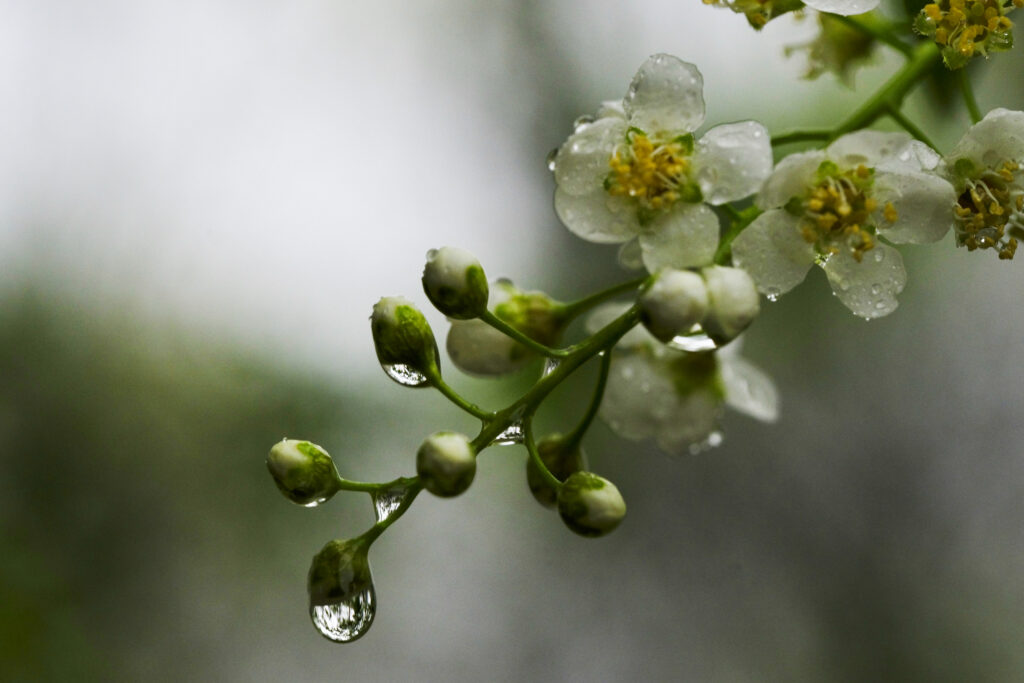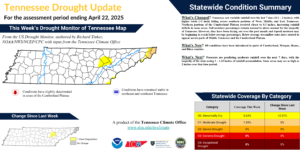
Nearly all of Tennessee is free from drought.
Between June and February, more than half of the state was in drought. Some areas, including parts of Middle Tennessee, cleared after heavy rain and snow in February. Nashville got more than 8 inches of precipitation over just nine days in February.
In portions of Middle and East Tennessee, however, the state remained in drought. About 20% of the state was in moderate to severe drought, and another 20% was abnormally dry through the end of March. A few spots in Middle Tennessee and the Cumberland Plateau had signals of “long-term drought,” according to the Tennessee Climate Office.
The soil in these areas finally saturated after an extended rainstorm event in early April — while other areas are extra saturated. Memphis got more than 12 inches of rain in four days, Clarksville broke its four-day record with about 10 inches, and Nashville got more than 6 inches of rainfall. (Through Monday, Memphis and Nashville had April rainfall totals of more than 14 inches and 8 inches, respectively, according to the National Weather Service. Memphis is about nine inches higher than its 30-year average precipitation for the month, while Nashville is about four inches higher.)
More: Nashville area sees 161 tornado, thunderstorm and flash flood warnings in two weeks
Through April 22, only 5% of the state was in drought. Just over 1% of the state is considered in “moderate drought,” according to the U.S. Drought Monitor.
But drought conditions can change quickly.
Tennessee has experienced statewide drought for the past three summers, sometimes with onset fast enough to be considered a “flash drought,” a term for droughts that intensify swiftly with abnormally high temperatures, winds and radiation. These droughts can sometimes be amplified by La Niña, a climate pattern that just ended in April. Flash droughts have become more common across the globe due to climate change.
The National Oceanic and Atmospheric Administration forecasts equal chances for above or below precipitation across Tennessee this summer.


